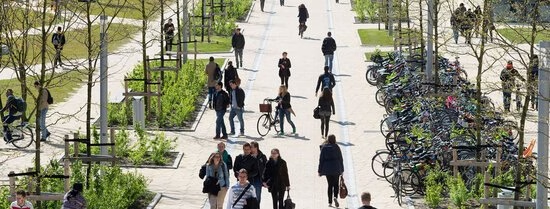Find more information about the medical assistance during pregnancy and giving birth in the Netherlands by following this link. After giving birth to a child the following steps need to be taken:
- Reporting the birth to your municipality (within three days after the birth)
- Reporting the birth to your health care insurance
- Apply for a residence permit for the child
On MyEUR (the intranet for EUR employees), you can read more about the leave entitles concerning pregnancy and maternity at the Erasmus University Rotterdam. You can log in on the intranet with your ERNA id and your password.
Residence permit for a child
If your child is born in the Netherlands, he/she does not get Dutch citizenship automatically. According to Dutch law, the child gets the citizenship of the parents. This means that the parents' nationality is transferred to the child. The country (place) where your child is born does not determine its nationality.
If your child is not entitled to Dutch citizenship upon birth, then you must apply for a residence permit for him/her as soon as possible. If your child has the nationality of an EU country or a country in the European Economic Area (EEA), or Swiss nationality then you do not have to apply for a residence permit.
Applying for a residence permit
Before you apply for your child's residence permit, you must first register your child's birth at your municipality. The municipality shall issue a birth certificate, which is recorded in the register of births, marriages and deaths. Your child is also registered in the Municipal Personal Records Database (Dutch: BRP). After registration you receive a BSN within a week. You will need the birth certificate in order to apply for your child's residence permit.
You will need to apply for a travel document for your child (for example, a passport). For that you should contact the authorities of your country. If your child (and you, as the parent) cannot obtain a travel document, then you must substantiate this situation with the appropriate documents.
Subsequently, you would have to telephone the Dutch Immigration and Naturalisation Service (IND) for an appointment. After you get an appointment, the IND will send you a letter specifying which documents you have to bring with you (for yourself and for your child).
If you submit the application at the IND counter, you will have to pay the application costs right away.
Once you have submitted and paid for the residence permit, your child gets a sticker in the passport (residence mark). This is proof of a legal stay in the Netherlands. This sticker indicates that your child is legally permitted to be in the Netherlands.
Travelling without a residence permit
If you child does not have a residence permit, then he/she is illegally in the Netherlands. Consequently, your child cannot travel to other countries.
